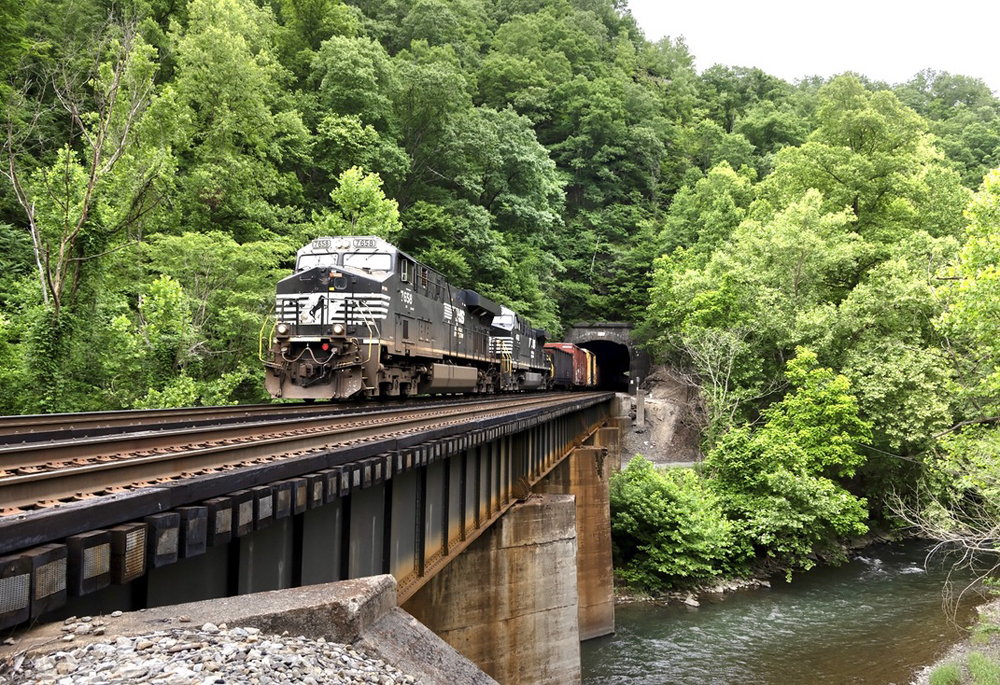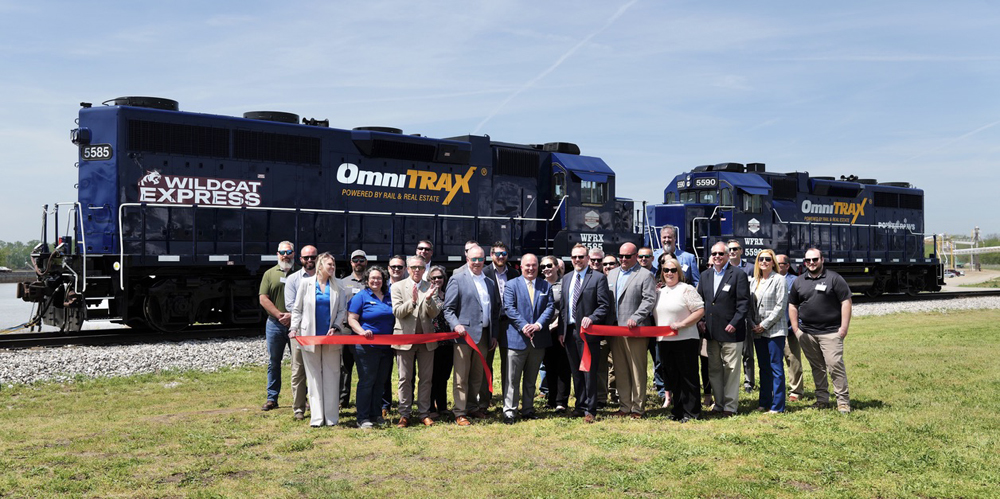While the Star’s ridership overall grew substantially in 2018 from 2017, it was necessary to eliminate a Friday-only evening train because it would put the commuter service over the maximum 12 daily trips allowed to qualify for a PTC exemption for the Nashville & Eastern Railroad. Friday is the only day that more than 12 trips per day is exceeded.
The deadline for railroads to comply with PTC laws or secure a deadline extension is Dec. 31.
The final Friday evening will train is scheduled for tonight. The restrictions are in place because none of the Music City Star trains or ones on the Nashville & Eastern Railroad is equipped with PTC.
Last May, Nashville voters overwhelmingly rejected a controversial referendum for a $5.2-billion transit plan that would fund future light rail projects and improvements to the Star commuter service. PTC work was reportedly included in the plan.
The Music City Star began operation in 2006. The service operates over 32 miles of the Nashville & Eastern Railroad Corp. between Nashville and Lebanon during weekdays. The track is owned by the Nashville & Eastern Railroad Authority.
In November, R. J. Corman Railroad Co. announced an agreement to acquire the N&E Railroad Corp., and Transit Solutions Group, the agency responsible for operating and staffing the commuter service. Corman expects to assume operations of both in January.














Nashville is as worthy of commuter rail as any city.
MICHAEL – Yes to your post, yes to your point. In transportation, cutting service frequency never works out. Increasing service frequency usually does. While I understand this service adjustment was due to the PTC mandate, not economics, the result will be the same.
It will be missed! More service is needed not less. It is cheaper and faster than taking an Uber or taxi to the same location. It took many drivers off the road who had just left the Broadway2nd Ave entertainment district who probably shouldn’t be driving. Doesn’t make sense to stop running a train that has no conflicting moves! It was the only train running at that time. Nashville and Eastern doesn’t run at night. They would make more money running on the weekends and at night. Also running trains for the 42 Nashville Predators games would be sold out!! …..For those above that say it isn’t an impact, all the station parking lots are packed on a daily basis.
The geography, city layout, and existing rail network of Nashville doesn’t work in favor of a heavy rail commuter system. MCS depot (N&E) is at the foot of Broadway Avenue; the former Nashville Union Station (CSX) is ten blocks west on Broadway. In between the two is the central business and government district.
Be that as it may, the N&E has the route with most potential and probably the easiest to add more capacity. Not mentioned is its sister road, the Nashville and Western. With track improvements and a route extension the N&W could offer service between Ashland City and Nashville Union Station.
Double tracking the CSX high bridge over the Cumberland River east of downtown and adding a north connection track to the Radnor-Antioch access line would open allow CSX to move more trains off of their mainline through Union Station. Maybe then there’d be room for commuter trains from Rutherford County and Dickson County, but who will pay for it is the big question.
Great to see an unfunded federal mandate working out so well! (Sarcasm intended).
ROBERT – Two ways to look at your post. In the big scheme of Nashville thingies, rail transit isn’t a drop in the Cumberland River. But eliminating even a single trip from a sketchy rail service makes it sketchier and is another crosstie in the line’s road to ruin.
It’s interesting that Nashville’s sole commuter service is on a low-stress freight short line. None are on CSX all of whose lines have somewhat frequent freights. CSX’s main for Chattanooga and Atlanta (serving populous suburbs Antioch, Smyrna and Murfreesboro) isn’t overwhelmingly busy but it’s single track with little room for stretches of double iron. Nashville’s few advocates for rail transit funding wouldn’t want to see CSX’s price. So if you want to commute from the southeast suburbs to Nashville drive your car on I-24 which despite being four lanes (one diamond lane, three general lanes) moves at a crawl. It will only get worse. Cut up by rivers, lakes and ravines, Middle Tennessee just wasn’t designed for its current (and rapidly increasing) population. There will be more people but no more freeway lanes and no additions to its token rail service.
Tennessee has wonderful (but overloaded) freeways. Once off the freeway, the state county local roads (and for that matter the freeway interchanges) are terrible. I-24 is a great freeway but its Smyrna interchange and the intersecting road look like what Wisconsin tore up and rebuilt in the 1980’s. The only alternative to I-24 is US 41 which is an ill-designed nightmare of incompetent traffic engineering.
Briley Parkway, the only bypass in the booming northeast quadrant of the metro area by the airport (and the route to Opryland), is useful but it’s built to less than freeway standards.
The bottom line is, if you want to live in Middle Tennessee, get a job where you live or else get a house near your job.
My guess is that they will be fine without it. It is a very small service in an automoblle-centric city. Only a very tiny portion of commuters use it. its disappearance will go unnoticed.
This will be interesting to watch. Will the taxpayers be happy with limited service or will they get fed up and demand more but refuse to pay for it, or will they be rational about the whole thing? There ain’t no such thing as a free lunch.
The above comments are general in nature and do not form the basis for an attorney/client relationship. They do not constitute legal advice. I am not your attorney. Find your own damn lawyer.